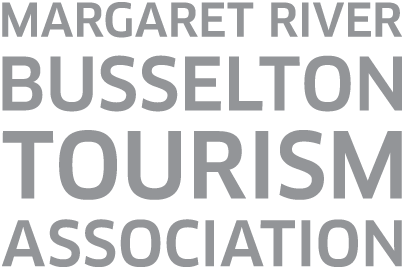
What about me?
The “Me” I refer to is the tourism and hospitality industry, which could be forgiven for recalling the lyrics to Moving Pictures 1981 hit when reviewing the most recent federal budget (or for those more contemporary readers, Shannon Noll released his own version in 2004). This budget has delivered benefits to other industry sectors such as property and construction, agriculture, technology, education, health and medical. Tourism and hospitality on the other hand appears to have suffered either from a lack of understanding or a simple unwillingness to deal with the elephant in the room, i.e. the projected absence of international border travel for the foreseeable future. There will of course be indirect benefits to the industry which will flow through from a recovering economy and the investment in infrastructure projects across the country. Unfortunately, there is almost nothing in this budget that could be considered a substantial industry wide measure, incentive, or support.
Tourism & travel
Having already been announced in March to address the end of JobKeeper, this package will give travellers access to 800,000 half-price airfares to 13 tourism reliant regions and assist airlines to retain staff. This tourism stimulus package was welcomed by the industry, but it was hoped that further measures would be announced. As it stands, this may be the most substantial policy we get.
SME Loan Recovery Scheme
This was also announced in March and is an extension of the previously implemented scheme. Small to medium enterprises (SMEs) with turnovers of up to $250 million can access funding of up to $5 million. Some of the other key features of the current version of the scheme are:
- Government guarantees up to 80% of the loan amount
- 10-year term
- Optional repayment holiday of 24 months
- Loans available from 1 April 2021 to 31 December 2021
Whilst not industry specific, it was announced to coincide with the end of JobKeeper and be considered an industry support measure. The original scheme was unpopular, but the changes to the current version certainly make it more appealing. This could be a legitimate funding option for tourism and hospitality businesses needing finance.
Company and business tax
These measures simply build on existing policy. The budget grants a one-year extension (to 30 June 2023) to two measures announced in the 2020-21 budget. The temporary full expensing of depreciating assets (TFEDA) and the temporary company loss carry back. TFEDA allows businesses with an aggregated turnover of up to $5 billion to deduct the full cost of eligible depreciating assets. This policy provides an incentive for businesses to bring forward investment to access the tax benefits before they expire. Whilst a welcome taxation policy, it only helps those businesses with the intention and ability for investment. There are also unintended consequences for small to medium enterprises (SMEs) that could result in some taxpayers actually being worse off.
Temporary loss carry back allows companies with an aggregated turnover of up to $5 billion to apply losses incurred in the 2020, 2021, 2022 or 2023 financial years to offset tax paid in the 2019 or later years. This is a good policy and has the ability to assist businesses who need a cash boost. However, it is only available to businesses operating in a company structure and it is temporary. We expect significant interaction of the loss carry back measures with TFEDA and ‘one off’ tax planning opportunities.
Craft breweries and small distilleries
From 1 July 2021 eligible brewers and distillers will be able to claim a refund on any excise they pay up to an annual cap of $350,000, which is up from the current cap of $100,000. While not specific to the tourism and hospitality industry many small-scale brewers and distillers are aligned to the sector and this is a welcome boost to those businesses.
Superannuation
The government will remove the $450 per month minimum income threshold under which employees do not have to be paid the superannuation guarantee by their employer. This change is expected to be enabled by 1 July 2022. No clarification has been provided for workers who are under 18 years of age and whether they still must meet the minimum hours test. The introduction of this measure combined with the superannuation guarantee increase from 9.5% to 10% from 1 July 2021 will increase the cost of employing many staff across the tourism and hospitality industry. Considering there are many part time workers engaged in the industry, it is expected that this change will particularly affect the tourism and hospitality sector and increase the cost of employment.
Student Visa Changes
Foreign students will be able to work more hours in the tourism and hospitality sector as the government relaxes visa restrictions in response to critical staff shortages. The current 40-hour fortnightly cap for student visa holders will be temporarily scrapped. Temporary visa holders working (or intending to work) in tourism and hospitality will be able to apply for the ‘408 COVID-19 Pandemic Visa’, allowing them to stay in Australia for up to 12 months. This will assist in addressing the critical staff shortages experienced by many businesses in the industry, which is limiting their ability to operate at full capacity and recover from the pandemic. Arguably, this measure may have limited effect on regional businesses due to the concentration of foreign students in metropolitan areas.
Summary
In my opinion, this budget is a lost opportunity and fails to deliver on two out of the three major challenges currently facing the tourism and hospitality industry in Western Australia.
Labour shortages (Fail) – while the visa changes are welcome, the budget does not address the ingrained inflexibility of the labour market in Australia. The sad reality is, staff shortages are likely to continue until the international borders reopen and backpacker workers return.
International borders (Fail) – if your business relied on international visitors you are likely to have suffered business losses during COVID-19. Given the difficulties experienced so far with the vaccine rollout and international COVID-19 outbreaks, the borders are likely to remain shut for the foreseeable future. These businesses can either pivot (which many have), hang on as best they can, or fold, and unfortunately the current budget measures do not fully address this reality.
Regional infrastructure (Pass… for now) – domestic tourism is booming, and this is placing incredible pressure on regional infrastructure. The regional areas need investment now to ensure they can capitalise on this boom and retain the domestic tourists once the international borders reopen. Whilst not perfect by any means, the federal government is committing to spending a significant amount of money on infrastructure in regional areas that will have long term benefits to the industry and the local communities.
Looking to learn more?
Our team of industry experts across the country have summarised, packaged, and graded the 2021-22 Federal Budget, breaking down the impacts for you, your family, your community, and your business. Visit https://www.rsm.global/australia/federal-budget-2021-22 to view the full analysis today.
Author: Simon Brown, Principal – Business Advisory, RSM Australia
Simon Brown
Principal – Business Advisory
RSM Australia
Shop 4/157 Bussell Highway Margaret River WA 6285
DL: +61 (08) 9752 1406
E: [email protected] | W: www.rsm.com.au

